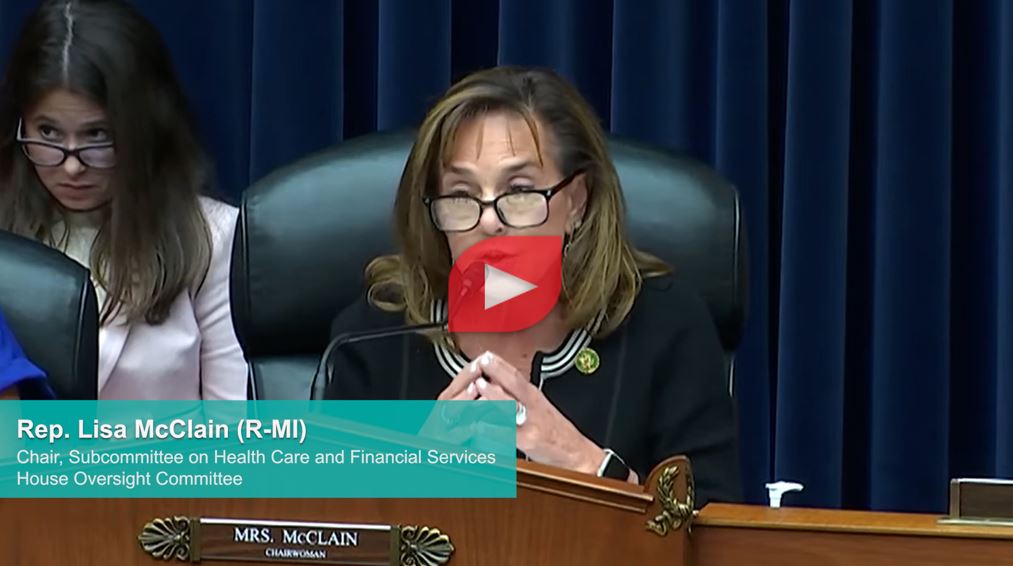The Inflation Reduction Act (IRA) includes a misguided plan to control prices that will only result in costlier medicine and reduced access, lawmakers and experts said during a September 14 hearing in the U.S. House of Representatives.
The House Oversight Subcommittee on Health Care and Financial Services held the hearing, entitled “The Inflation Reduction Act: A Year in Review,” marking the one-year anniversary of the law. The IRA passed on August 16, 2022, and the Biden administration is now preparing for the implementation of price controls on the first ten drugs selected.
‘Code language’ for price controls
Several Members of Congress and witnesses discussed how the law’s price controls would harm biotech innovation and investment.
By allowing the government to “dictate arbitrary prices on drugs,” the law disrupts normal market mechanisms and risks the supply of drugs, said Chair Lisa McClain (R-MI). She likened the effort to President Jimmy Carter’s failed energy price controls in the 1970s.
The term “negotiations” is code language for “government price controls,” she noted.
“Drug price controls risk the future of investment in research and development of the innovative treatments Americans need the most,” Chair McClain said.
The impact on the drug market
The law creates significant market uncertainty, said witness Joel White, President of the Council for Affordable Health Coverage.
The Centers for Medicare and Medicaid Services (CMS) decision regarding the first ten drugs was secretive and based on unpredictable guidance, sowing uncertainty in the market, he said.
CMS consumes $3 billion in federal funds to implement price controls, he added.
This will have the consequence of reduced access, he continued. “In the UK, for example, they’ve had a similar system in place, for several of decades. They have access to about half as many medicines as people in the United States,” said White.




